Replay Available: Contact Tracing and Control of Community Spread of COVID-19
Date: August 22, 2020 @ 2:00 pm – October 22, 2020 @ 2:00 pm
Location: https://zoom.us/rec/share/w_1FBKrJzWBOcJXg6GOceaJ7R4rOaaa8hCYd_fsEnhsT97NQP0pjJyEBpZWyQh0u
On August 22, 2020, the Chinese American Biopharmaceutical Society (CABS) successfully hosted a webinar entitled “Contact Tracing and Control of COVID-19 Community Spread”. This webinar is co-organized with Chinese American Semiconductor Professional Association (CASPA) and Gracious Life Foundation (GLF). The webinar attracted almost 150 attendees from around the world. A replay of the webinar can be accessed HERE.
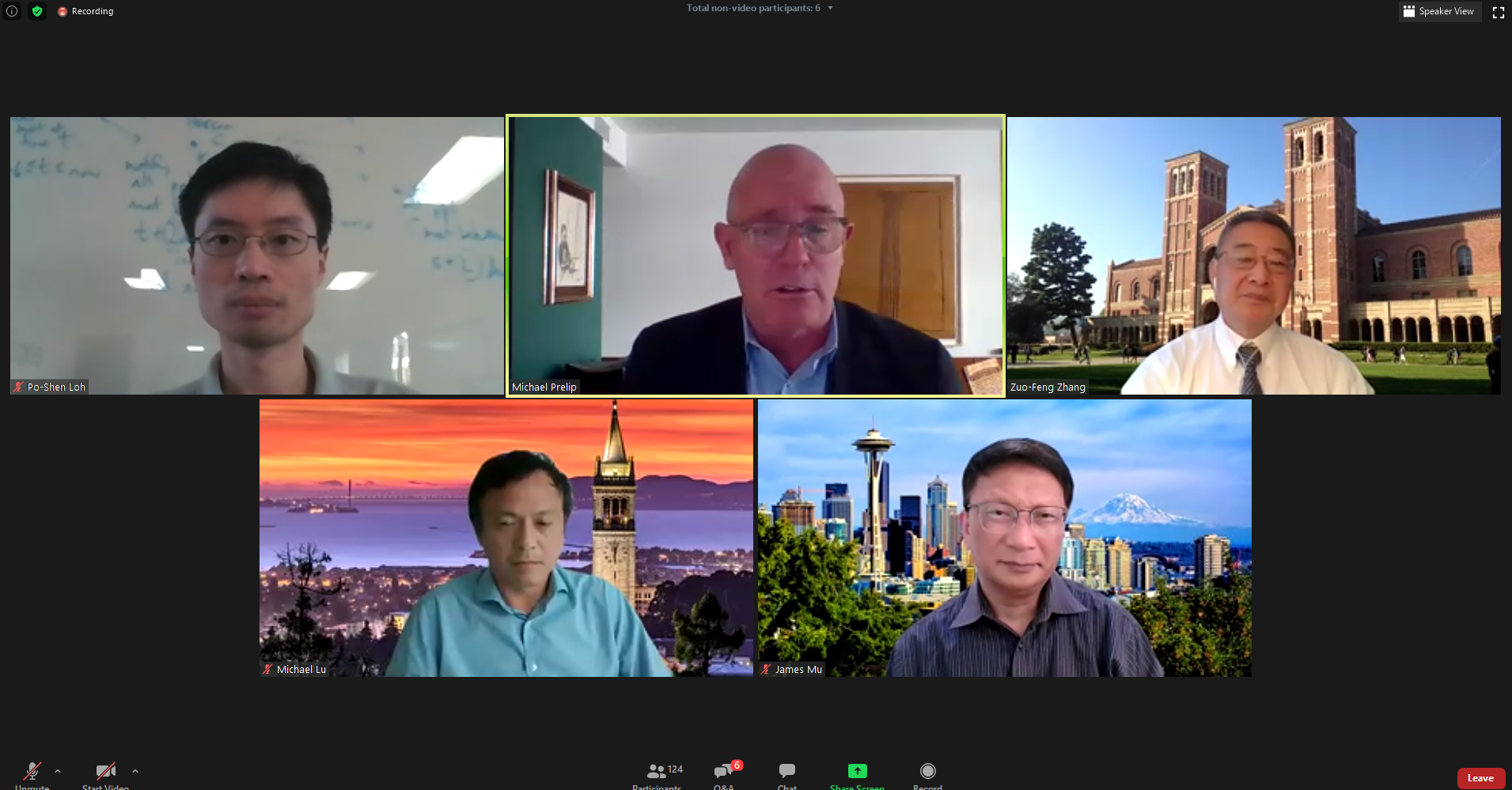
Dean Michael Lu, from UC Berkeley School of Public Health, started with a keynote speech on “Innovating Solutions to Covid-19”. Dr. Lu started with an overview of reentry testing such as saliva testing, pooled testing, and CRISPR-based point-of-care mobile testing, as well as outbreak surveillance technologies such as adaptive surveillance using sewage, water and air sample testing. Then Dr. Lu discussed infection control strategies, such as facility modifications, behavior modification and digital contact tracing. Dr. Lu also discussed instructional redesign strategies to prepare for remote/hybrid classroom learning. In the end, Dr.Li discussed ways to prevent future pandemics, such as preventing zoonotic transmission, global early warning system and AI-powered drug discovery. “The real solution will come by transdisciplinary, transinstitutional, and transnational collaborations”, Dr. Lu concluded his talk.
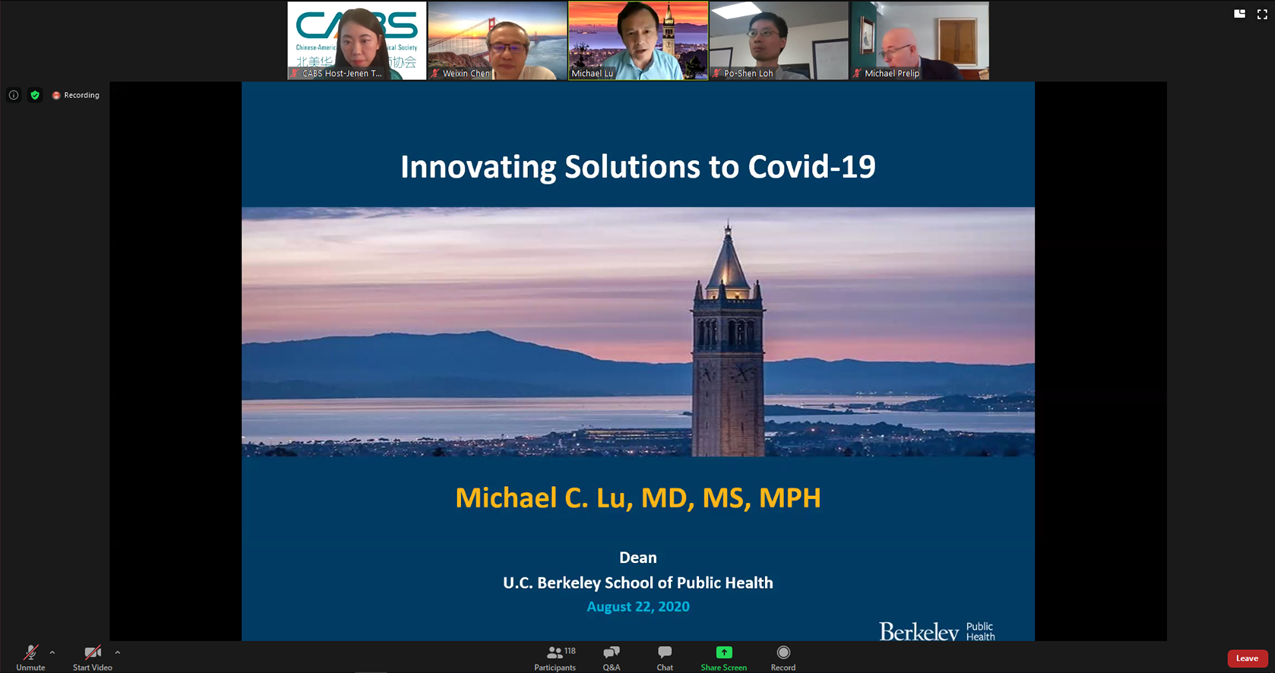
Dr. James Mu, from Providence Regional Medical Center, Seattle, Washington, presented “COVID-19 contact tracing, therapeutics and vaccine development”. Dr. Mu explained the power of genomic (phylogenetic) tracing in addition to the traditional contact tracing. He also reviewed the literature on chloroquine, remdesivir and dexamethasone for COVID-19 treatment. Dr. Mu then discussed established (inactivated virus and recombinant vaccines) vs. new nucleic acid vaccine development strategies and the respective human clinical trial data. COVID-19 spike protein is the common target antigen used by most COVID-19 vaccines in development, but Dr. Mu pointed out that purified spike protein and live virus behave differently, making vaccine development more challenging. Dr. Mu is, however, cautiously optimistic in a successful vaccine for COVID-19.
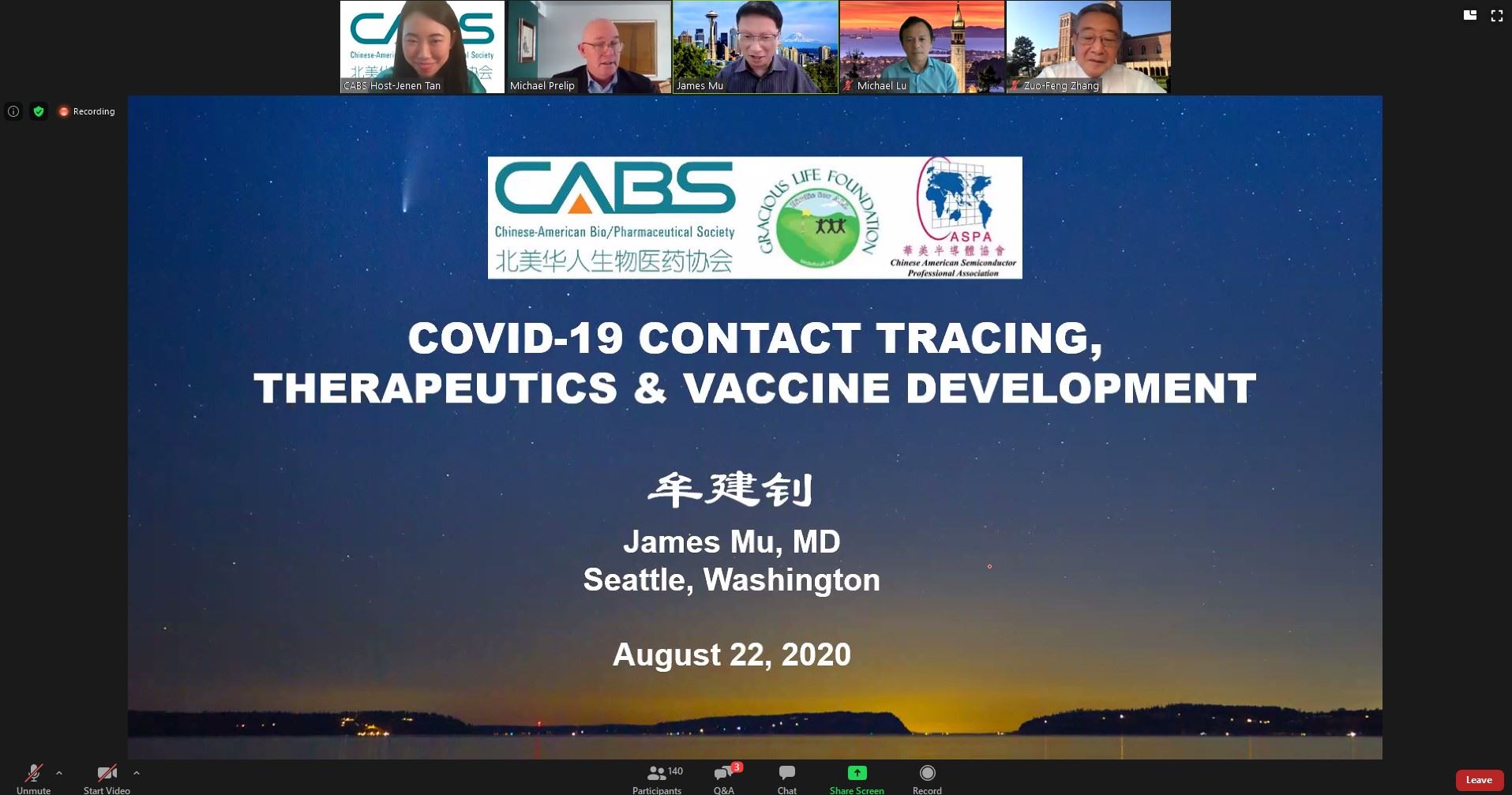
Professor Zuo-Feng Zhang, from UCLA Fielding School of Public Health, presented “Epidemiology and Control of COVID-19 Pandemics: Current Status & Future Trends”. Dr. Zhang started with an overview of COVID-19 epidemiology statistics around the world, such as US, Brazil, and India. In the US, we started to see the new reported cases going down in last 2-3 weeks. “This is a good sign”, Dr.Zhang said, “it is also encouraging to see it now takes longer to accumulate 1 million new cases than before, this is indicating the spread is slowing down”. Dr. Zhang also demonstrated that mortality rate is much higher in non-Asian countries than in Asian countries, possibly due to the use of face masks, BCG vaccination, fewer co-morbidities, sufficient testing or over/under reporting deaths.
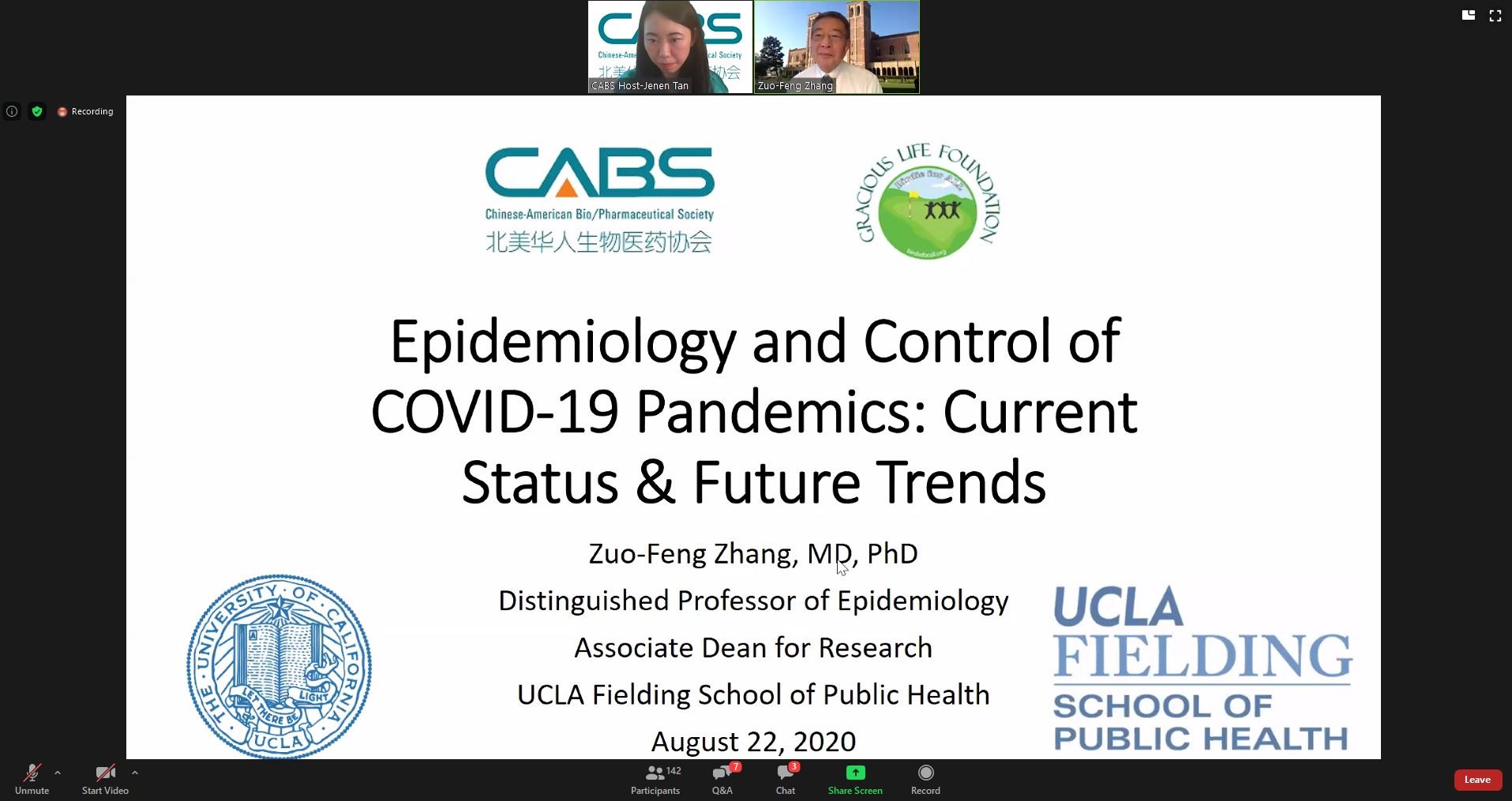
Our last speaker, Professor Po-Shen Loh, from Carnegie Melon University, presented “An alternative paradigm for app-based contact tracing which incentivises adoption”. “COVID-19 is a network theory”, Dr. Loh said, "for example, the R0 number in COVID-19 is related to measures of connectivity in network structure". Then Dr. Loh demonstrated how a mobile App “NOVID”, which he helped designed, could be used to encourage social distancing especially in college. NOVID can show how the spread of COVID-19 relates to you, not in terms of physical distance but in terms of degree of connection. “This is more effective than a case heatmap by zip code”, Dr. Loh said, “it can really tell you whether the disease is approaching you or not, then you can modulate your behavior”.
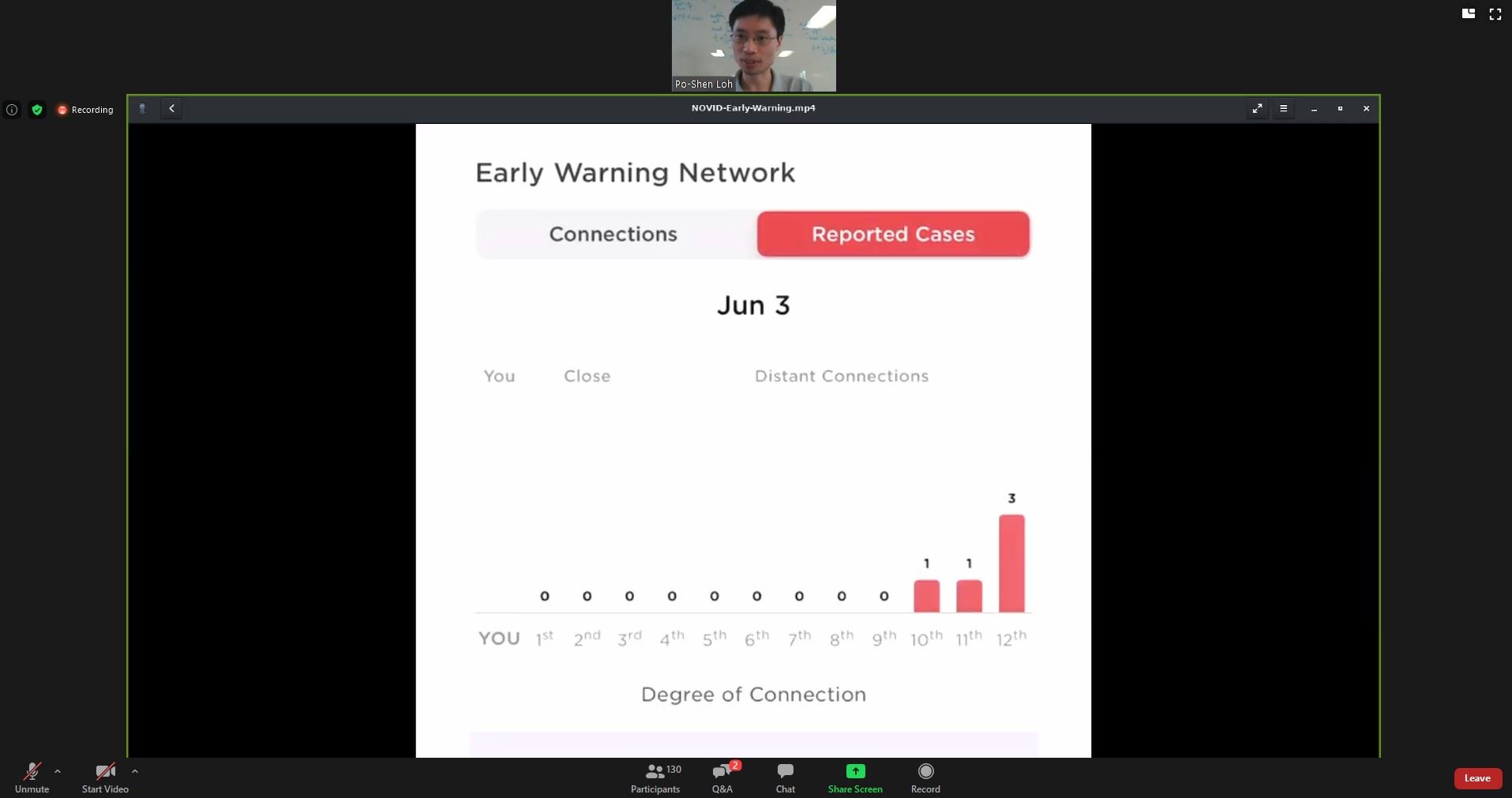
Finally, Dr. Michael Prelip, Professor and Chair, Department of Community Health Sciences, UCLA, moderated a panel discussion among the four speakers and discussed important questions related to disparity in healthcare access and strategies to encourage behavioral change and vaccination.
We would like to thank all five speakers for their time and contribution. We also want to thank Jenen Tan, Hesong Han, Guanghui Han, Carrie Wang, Weixing Chen, Song Xue for organizing the logistics of the event. To learn more about CABS’ effort in the COVID-19 response, please visit our website www.cabsweb.org.
.
